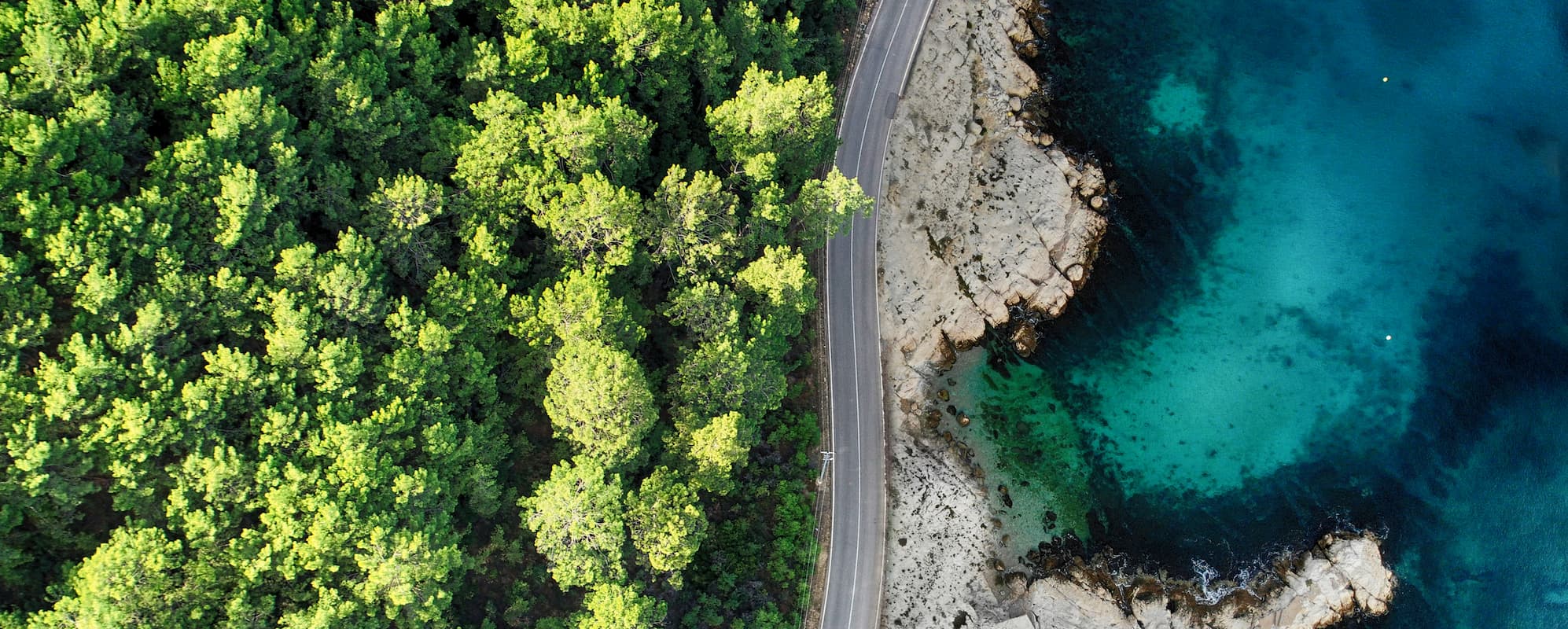Taking action for a greener planet: How the health of both land and sea is interrelated
Brunel Foundation

Brunel Foundation
The earth is facing severe challenges – such as climate disruption and biodiversity loss – on land and at sea. Each depends on the other in so many ways. Their health and well-being, too, are closely interlinked.
Climate disruption, specifically rising temperatures due to increased carbon dioxide levels, adds to the risk of irreversible loss of marine and coastal ecosystems through damage to coral reefs and mangroves that support ocean life, and through the migration of species to higher latitudes and altitudes in search of cooler water.

The oceans are home to a vast array of species, many of which are yet to be discovered. Preserving ocean life is crucial for the overall health and stability of ecosystems, as each species plays a unique role in the food chain and contributes to the overall balance of marine ecosystems.
The ocean and its inhabitants are essential for a healthy planet, providing half of the oxygen we breathe and absorbing significant amounts of carbon dioxide. Coastal wetlands, seagrass beds and mangroves in particular also sequester carbon, helping to regulate the climate.
One of the ocean's best-known inhabitants is the whale. While this magnificent creature never fails to astound us with its sheer size, it also plays a crucial role in the ocean's carbon cycle. Surprisingly, whales absorb an average of 33 tons of CO2 over their lifetime.
To delve deeper into this fascinating process, watch the video below, which provides additional insights into whales and their impact on the carbon cycle.
©Studiodemaan
Climate disruption affects not only marine ecosystems but also terrestrial environments. As temperatures change and habitats are altered, numerous plant and animal species may experience shifts in their geographic ranges. Some species may be forced to migrate to more suitable habitats, while others encounter reduced availability or the fragmentation of their habitats. These transformations can disrupt ecological communities and have far-reaching consequences for other species that depend on them, potentially leading to extinction.
The health of the planet relies on biodiversity, which directly impacts all aspects of our lives. Without a diverse array of animals, plants and microorganisms, including the unique and densely populated flora and fauna found in rainforests, we cannot sustain the healthy ecosystems on which we depend. Biodiversity provides essential services such as clean air, fresh water, high-quality soil and crop pollination. Additionally, land ecosystems play a critical role in mitigating climate change by absorbing and storing carbon dioxide. Terrestrial ecosystems, such as forests and grasslands, act as carbon sinks by absorbing carbon dioxide from the atmosphere through photosynthesis. Given the dynamic interactions of living organisms in ecosystems, the loss of biodiversity thus has wide-ranging impacts.

Preserving and sustainably managing forests is essential for maintaining the health of the environment, supporting biodiversity, mitigating climate change, regulating water cycles and ensuring the well-being of both human and natural systems.
Furthermore, pollution and waste have increased tenfold in recent decades, adversely affecting animals, air, water and soil. These factors can be regarded as major drivers of biodiversity loss. Although wildlife and plant life have evolved successfully over million years, they struggle to adapt to life on a polluted planet, be it on land or in the sea.
Both terrestrial and marine ecosystems provide essential resources and services that support human well-being. They offer food, clean water, climate regulation, cultural values, recreational opportunities and economic benefits. The degradation of either ecosystem can have direct consequences for human health, livelihoods and overall quality of life.
Cultivating awareness is an important step in addressing and mitigating the impacts of climate disruption, but it must be accompanied by action if it is to have a meaningful impact. Raising awareness helps to educate and mobilize individuals, communities and governments to recognize the urgency and foster a shared responsibility for taking action.
The Brunel Foundation believes in doing its part for the environment. With our partners and projects, we strive to be a catalyst for change, inspiring and encouraging Brunel employees to make sustainable choices whenever and wherever they can.
We believe that taking small actions can lead to fundamental change for the planet. All the changes we make together on a daily basis will impact the environment on a global scale.
With initiatives such as planting the Brunel Foundation Forest, removing litter from the environment with Trash 'n’ Trace, and implementing the Building New Habits Campaign, the Brunel Foundation aims to raise awareness and take action towards creating a sustainable world.
